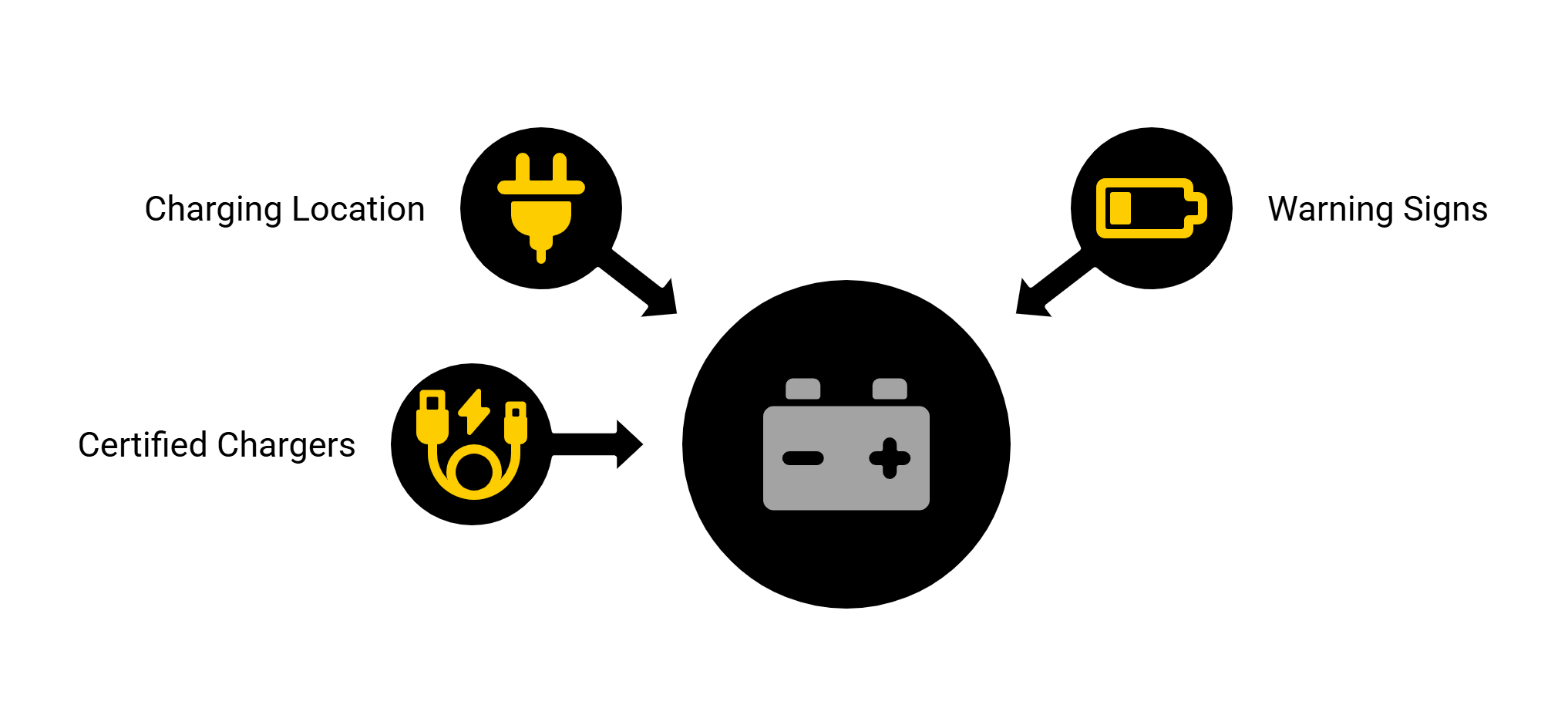Hidden Hazards at Home: The Safety Risks of Everyday Devices
We rely on our phones, laptops, and tablets every day, often without a second thought. Yet, inside each of these devices lies a powerful energy source that demands respect: the lithium-ion battery.
Lithium-ion batteries are efficient, rechargeable, and compact, all qualities that make them the backbone of modern technology. But when mishandled, damaged, or paired with uncertified accessories, they can quickly turn dangerous, leading to overheating, fire, or even explosion.
We All Do It – Time To Rethink Your Charging Habits
While lithium-ion batteries are generally safe when properly used and tested, a few everyday (bad) habits can greatly reduce your risk:
- Charge in the right place: Always charge devices in a well-ventilated area, away from flammable materials like bedding or upholstered furniture.
- Don’t ignore warning signs: Stop using batteries that show swelling, leaking, or overheating.
- Use certified chargers: Replacement chargers and cables should be purchased from trusted sources and display recognized certification marks, like, for example, the LC Mark. Uncertified or counterfeit chargers are a common cause of electrical fires.
This Fire Prevention Week is a great reminder that safety starts at the source, and that includes the testing and certification that happens long before a product reaches your hands.
What To Watch for When Shopping Online
Online marketplaces make it easy to find what you need, but they also make it easier for unsafe, mislabeled, or counterfeit products to slip through.
Before you click “BUY,” take a few extra steps to protect yourself:
- Check whether the product has been recalled.
- Look for verified sellers and clearly marked certification symbols.
- Be cautious of deals that seem too good to be true, they often come with hidden safety risks.
Uncertified or poorly manufactured products can expose you to electrical shock, chemical hazards, and, in some cases, start fires in your home.
IMPORTANT: If the fire was started by an uncertified product, your insurance might not cover it.
Proof Over Promise – Why Product Certification Matters
Proper certification ensures that a product has been tested against the correct and recognized safety and performance standards. The appropriate standard is determined by the product type, its intended use, and the regulatory requirements of the market (country) where it will be placed or operated.
This helps to:
- Prevent electrical failures and fires.
- Ensure accurate hazard labelling and warnings.
- Protect both consumers and manufacturers from liability.
When you see a recognized certification mark, it means the product has undergone strict evaluation for safety and compliance, which process often also includes ongoing factory audits and production checks.
Stay Informed, Stay Safe
Product recalls, ranging from consumer electronics to household goods, commercial and industrial equipment, and children’s products, serve as important reminders that safety testing is not optional. It’s what stands between a convenient product and a dangerous one.
This week, take a moment to look around your home:
- How many rechargeable devices do you own?
- Are their chargers certified?
- Is the certification for the right market?
- Do you have a bad habit of charging your devices in poorly ventilated areas?
- Has the device you’re using recently been recalled
Awareness is the first step toward prevention.
For more information on Lithium-ion Battery safety, visit: https://www.canada.ca/en/health-canada/services/household-products/battery-safety/lithium-ion.html


